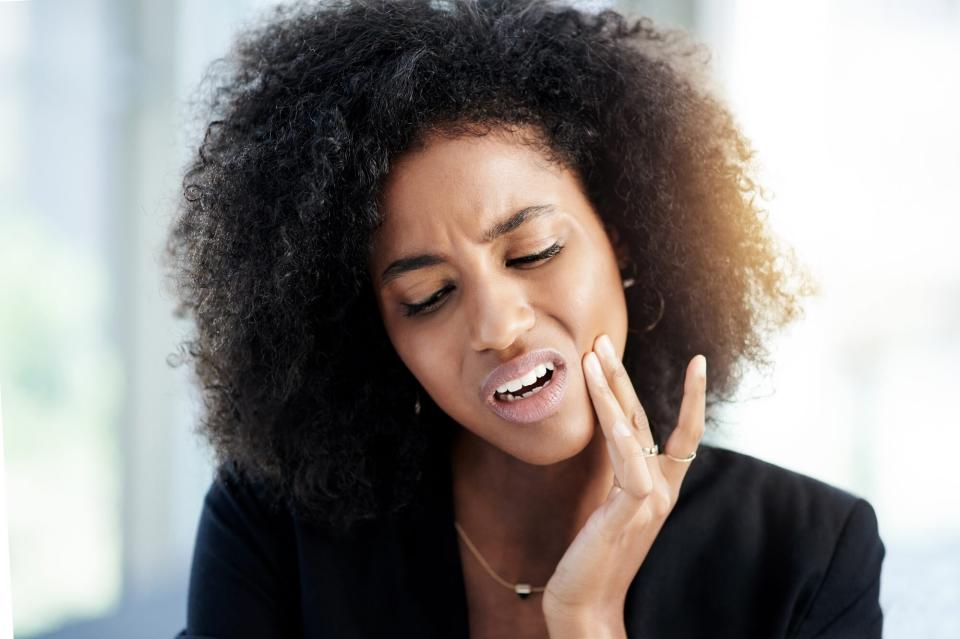Break This Habit Before You Break Your Teeth: How to Stop Clenching Your Jaw While You Sleep or Work
Jaw clenching, which can be caused by bite problems, sleep disorders, and stress, can lead to serious problems in your mouth, and it's becoming more common: In a March 2021 survey from the American Dental Association Health Policy Institute, more than 70 percent of dentists noted an increase in the number of patients grinding or clenching their teeth—up from about 60 percent of dentists who recorded an uptick in the fall of 2020.
Uncomfortable long-term effects, including chipped or cracked teeth, a sore jaw, headaches, and tooth sensitivity, can worsen over time, so it's important to identify this habit as soon as you can. "Many people think that if they do not know about it, then they're not doing it, when that is the not the case," explains Tricia Quartey-Sagaille D.M.D., F.A.G.D., of the American Dental Association. "Clenching and grinding are often happening while you're not aware."

Mikolette / Getty Images
Related: Five Things Your Teeth and Gums Are Telling You About Your Overall Health
Some patients notice themselves clenching their jaw during the day, and that's especially true if they're ultra-focused on a particular task or seriously stressed. But people who clench their jaw when they're asleep need to watch for other signs, like jaw pain or stiffness, clicking or popping in the joint where your jaw meets your cheekbone, and other serious symptoms. "Signs that you might be clenching your jaw include multiple chipped teeth and pain in muscles or joints when waking up," notes Dr. Quartey-Sagaille. "Sometimes, people may wake up with headaches or feel that their teeth are clenched when they awake." And sometimes, you need someone else to tell you that you're clenching your jaw—like a partner who notices it during the day or at night, or a dentist who sees chipped or flattened teeth.
If you think you might be clenching your jaw, your first stop should be an appointment with your dentist. "I always recommend seeing your dentist first before trying an over-the-counter treatment or mouthguard," says Dr. Quartey-Sagaille. "Teeth grinding can have multiple causes and it is best to determine those first before recommending individual treatments." While some patients use a mouthguard to stop clenching, others benefit from simple lifestyle changes—like adding stress-reducing yoga or meditation to their daily routine, giving up smoking, or declining a cocktail after dinner; some research has linked teeth grinding with alcohol and tobacco use. "People who drink alcohol and smokers are approximately twice as likely to grind their teeth," adds Dr. Quartey-Sagaille, "so try to limit both before bed."

